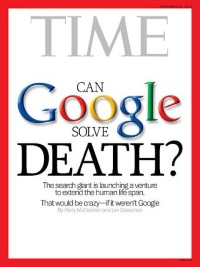- Kaiser Permanente’s Medicare Plans Top-Ranked
- Hospital mergers may lead to higher prices
- Local physician indicted in alleged kickback scheme
- F.T.C. Wary of Mergers by Hospitals
- $1.43 of every $100 in America goes toward hospital administration
This makes the United States different from most other countries. In 11 countries that this Health Affairs article looked at, hospitals usually put about 12 percent of their budget toward administrative activities. But in the United States, hospitals spend a full quarter of their funds on filing the necessary paperwork to make sure that surgeries happen and patients get scheduled
- V.A. Official Acknowledges Link Between Delays and Patient Deaths
- Intermountain Healthcare improves patient engagement
- Reform Update: Anthem’s Vivity alliance with seven L.A. systems aims at Kaiser
- The ink is still drying on 4 of the most interesting deals in healthcare
- More big changes at University of Pittsburg Medical Center
- Ascension expands its growth across entire continum of care
- Kaiser Permanente CIO Philip Fasano resigns
Kaiser Permanente CIO Philip Fasano wrote an excellent book on Healthcare IT - a must read to learn more about both IT in the health care space and Kaiser. Mr. Fasano's move to the largest health insurer is a significant tell for our business, notably the increased reliance on big data as well as the alignment of insurance companies and care providers.
- Nonprofit hospitals: The potential for conflict of interest is huge
- A big shift in Chicago’s hospital market
- New 8-hospital Beaumont Health names 10 executives
- 20 hospital closures, bankruptcies so far in 2014
- Advocate, NorthShore merger would create giant health system in Illinois
- Hospitals better get real about charges or face alternatives replacing them!
This article proves that while you can debate if the reform we got was the reform we needed you can't argue the need for reform. Hospital leadership continues to posture, obfuscate and down right mislead consumers of their services. What is going to get this to change?
- Carolinas HealthCare looks to cut $110 million in 2015 budget
- Doctors are shifting their business models
More evidence private practice is going away - unless you can afford it.
- Are you ready for Walmart to be your doctor?
- CVS stops selling tobacco, offers quit-smoking programs
The contradiction of selling tobacco was becoming a growing obstacle to playing a bigger role in health care delivery," Merlo says.
- If you sell into Scripps you should read the CEO’s new book.
Now with five acute-care hospital campuses, dozens of outpatient centers throughout San Diego County, and more than 13,500 employees and 2,600 affiliated physicians, Scripps is ranked as one of the top 15 integrated health systems in the country by Truven Health Analytics. The system has made Fortune's "100 Best Hospitals to Work For" list for six consecutive years. Scripps CEO Chris Now Van Gorder is sharing the story of building this IDN in a riveting new book, "The Front-Line Leader: Building a High-Performance Organization From the Ground Up."
- Independent physicians beware, Tenet might be cleaning house
Another sign private practice might become a thing of the past? You judge.
- CVS Caremark’s 9 latest clinical affiliations
CVS Caremark and Walgreens have significantly increased their clinical affiliation activity in recent years, in attempts to grow market share as retail-based healthcare providers. CVS has entered into a total of 41 partnerships, doubling the number of affiliations of their rival, Walgreens, which has 20.
- Single-payer system – they want it and say Maryland proves it works
- 10 reasons capitation won’t take hold
While managing the health of a population is a noble cause and logically should fall under the purview of a health system (at least according to the federal government), there is little, if any, evidence that the current obsession with taking global risk for the management of the health of a population will end any better than it did in the 90s. Here are 10 reasons why capitated risk is still not likely to take hold anytime soon:
- In response to Prime lawsuit, SEIU goes on the attack
The Service Employees International Union-Healthcare Workers West is stepping up its campaign to block the sale of Daughters of Charity Health System to Prime Healthcare Services, which is accusing the union of racketeering and extortion.
- Ascension deals signal new economic reality in healthcare
- Los Angeles goes after patient-dumping for a third time
Glendale Adventist's settlement is the third Los Angeles has filed so far this year. In January, 102-bed Beverly Hospital in Montebello, Calif., paid $200,000 in a patient-dumping case. Pacifica Hospital of the Valley, a 231-bed facility in Sun Valley, Calif., agreed to a $500,000 settlement. The city has been working with the Hospital Association of Southern California to help hospitals communicate with all patients and carry out proper discharges for them.
- Revolutionary Advances in Life Sciences amid Industry Disruption and Uncertainty
- The Sunshine Act: Are spine surgeons wary of device company partnerships?
- House passes bill to repeal, refund medical device tax
- When the Biomedical Industry Can’t Prioritize Diseases, Private Money Can Save Lives
- FDA’s Move to Regulate LDTs Could Reshape the Industry
- Samsung Learns that Smartphones with Biometric Sensors have to be labelled as Medical Devices & Drops the new Sensor
- 3 Trends Shaping The Evolving Medtech Market
- Thousands fewer companies than expected pay medical device tax
- As a proton therapy center closes, some see it as a sign
Clinical efficacy is a critical component for medical device manufacturers to consider. It is no longer enough just to innovate or have a new shinny widget to boost sales. Insures, payers and care providers are increasingly looking to the medical results for the equipment they allow. This is a good trend - one that will have serious results if you are not prepared. Case studies, ROI and peer reviewed data on your devices are going to be required if your products will be accepted and purchased going forward.
- The medical device tax: An abject failure
- Whitepaper: 10 Commandments for Medical Device Product Development
- Imaging Technology Leader Konica Minolta Chooses Kyriba to Enhance Global Cash Visibility
- Paulsen takes another run at medical device tax repeal
- China, Russia build new barriers for foreign medical device manufacturers
- Medtronic mired in controversy over allegations of illegal kickbacks
- Profits from medical devices used to bribe doctors?
- More proof that Google and Apple are going to be big Medical Device competitors
We've been traditionally worried about big iron players, such as GE, Philips or Pharma as our largest competitive threats. Meanwhile non-traditional competitors have been entering the market unnoticed, such as Apple, Dell Computers, Google, CVS, Walgreens and others. Some of these companies may be customers for medical device suppliers. Others intend to dominate not only the device and software space but providing care as well. Time to watch these companies and develop competitive strategies before they put you out of business.
- Drug, medical companies have a history of settling over illegal activity
- Medical device makers are designing a productive future
- Obamacare’s Device Tax Grows More Devious
- Tomosynthesis Market Sees Competition with GE FDA Approval
- Conducting Production Line Testing of Medical Electronics
- Hologic hits record on KLAS results
- Medical Devices Experience Fewest Recalls Since 2012
- The reports of CR’s demise have been greatly exaggerated
Ron Batory, Konica Minolta’s product marketing manager for CR and conventional imaging products, says CR still is recognized as the system of choice for late digital imaging adopters, thanks to rapid technological developments and decreasing CR prices over the past few years.
- Toshiba partners with John Hopkins
You simply can't sell boxes any more. The days of slinging iron with the pitch "get your ROI here - do more, get paid more" is over. That way of selling died when ACA was signed. Today you have to create value and be part of the cost/clinical value solution - not simply a vender. Toshiba's initiative is a stellar example of how those of us in the Medical Device Industry can partner with care providers. "Toshiba recognizes the ability of big data to monitor individual health, and in the future, to support day-to-day clinical decision making," said Rich Mather, PhD, director of clinical programs of Toshiba Medical Research Institute USA. "With our collaboration at Johns Hopkins, we hope to create a new paradigm in medicine that transforms healthcare into a more efficient, cost-effective and data-driven enterprise that will help to improve patient outcomes."
- Health Device Manufacturers Flock To Irving To Pitch Products To Hospitals
In 2013, hospitals purchased more than $49 billion in products and services through Novation contracts. Wednesday’s Innovative Technology Expo at the Irving Convention Center was the third the company has hosted. About 120 suppliers got face-time with the hospital representatives who could potentially contract to buy their products.
- If you sell to the Government over $204,000 you may violate the Trade Agreements Act
- Submit Your Entries For 2014 Dare-to-Dream Medtech Design Challenge
If concerns about funding, FDA, and reimbursement did not cause you sleepless nights, what dream medical device would you design? The editors of MD+DI invite you to participate in the 2014 Dare-to-Dream Medtech Design Contest.
- Risk Sharing Between Pharmaceutical, Biotechnology, and Medical Device Manufacturers
Pharmaceutical and biotechnology companies should prepare themselves to meet the risk sharing demands from the increasing number of ACOs in the coming years, according to new research from HRA – Healthcare Research & Analytics. In the company’s most recent study, Accountable Care Organizations: Partnering for the Future, ACOs are increasingly looking for risk sharing to become part of standard contracting agreements with manufacturers in the near future.
According to input from 100 accountable care organizations, 8% of Medicare ACOs and 4% of Commercial ACOs already have active risk-sharing programs with manufacturers. The risk-sharing models vary across ACOs, but the message is clear that the organizations expect manufacturers to have a stake in patient outcomes.
“We need you to come to the table and say – ‘we want to partner with you and the providers to share risk’,” says Edward D. Shanshala, CEO at Ammonoosuc Community Health Services, a key opinion leader (KOL) interviewed as part of the study.
- How Much Does That X-Ray Cost? You Can Find Out In New Hampshire
- When A Hospital Closes
- Informed design approaches help to prevent patient harm
- Are micro clinics the future of healthcare delivery?
- A day in the life of a Radiologist
- Informatics Interoperability Not Prioritized by Vendors
- Has Obamacare Failed?
- Healthcare Continues to Grow with Outsourcing, IT especially
- 11 recent data breaches
- 7 skills needed to be competitive in the health IT job market
- Thoughts on Not Betting the Farm When it Comes to Urgent Care Mania
- 25 years of health IT: 30 findings on changing perspectives
- Can HMOs make a comback as part of employee spondered healthcare insurance programs?
- Radiologic Technologist Requirements Vary by State
- 35 key findings on American physicians today
- Peter Drucker’s brilliant 47-year-old idea could transform healthcare
- Reform Update: Doctors order unnecessary tests without even realizing it
- Value-based care: Bad for doctors, bad for patients?
- 5 things people get wrong about Canada’s health system
- THE 2014 PHYSICIAN’S PRESCRIPTION FOR HEALTH CARE REFORM
- So doctors are sick of medicine: What can we do to fix that?
- Healthcare spending through 2023: 15 things to know
- What You Need to Know About PACS and VNA
- Defensive Medicine: A Cure Worse Than The Disease
Gallup reports that one in four healthcare dollars spent in healthcare can be attributed to defensive medicine – about $650 billion annually. These costs are passed along to everyone, significantly driving up health insurance premiums, taxes to cover public health insurance programs, co-pays and out of pocket costs.
The problem is likely to get worse under the Affordable Care Act. There will be fewer physicians in the workforce and 30 million more patients with healthcare coverage. The practice of defensive medicine will escalate as more patients are cared for by people who are overworked, and increasingly they are seen in settings such as emergency rooms by people unfamiliar with the patient.
- 5 industry changes that could transform healthcare (and how they could fail)
- CIOs’ top investment priority
This is where IT sales and dollars will be found. The survey of 70 College of Healthcare Information Management Executives members by data solutions vendor Health Catalyst found 54 percent rate data analytics as their highest IT priority. Other top priorities included population health initiatives, ICD-10, accountable care initiatives and consolidation-related IT investments.
- The computer in your exam room – how the government is determining how your doctor talks with you
- How has employer provided health insurance changed in 2014 under ACA?
The architects of the Affordable Care Act have as a stated goal the end of employer provided healthcare insurance. So how has insurance provided by employers fared so far?
- How will these cost control strategies used by hospitals impact your sales?
Have you thought through these issues?
- Physicians don’t know the dose patients get study says
CT accounts for around 10% of all imaging examinations but contributes up to 70% of the collective radiation dose to patients
Seach MedSales Report
Topics
- Accountable Care Organizations
- Affordable Care Act
- Books
- Business & Economics
- Clinical Engineering
- CMS
- Construction – Expansion
- CR
- Critical Access Hospitals
- Diagnostic Imaging
- DR Basics
- Events
- GPO
- Healthcare
- Healthcare IT
- Hospital Administration
- Hospitals
- Imaging Centers
- Medical Device Manufactures
- Multiple Hospital Systems
- Orthopedics
- PACS/RIS
- Physican Office Market
- Presentations
- Regional News – Great Lakes
- Regional News – Gulf Coast
- Regional News – MidAtlantic
- Regional News – Northwest
- Regional News – Southeast
- Regional News – Southwest
- Reseller News
- Sales Management
- Sales Training & Coaching
- Supply Chain Management
- Top Links
- Training
- Uncategorized
- Videos
- Whitepapers














